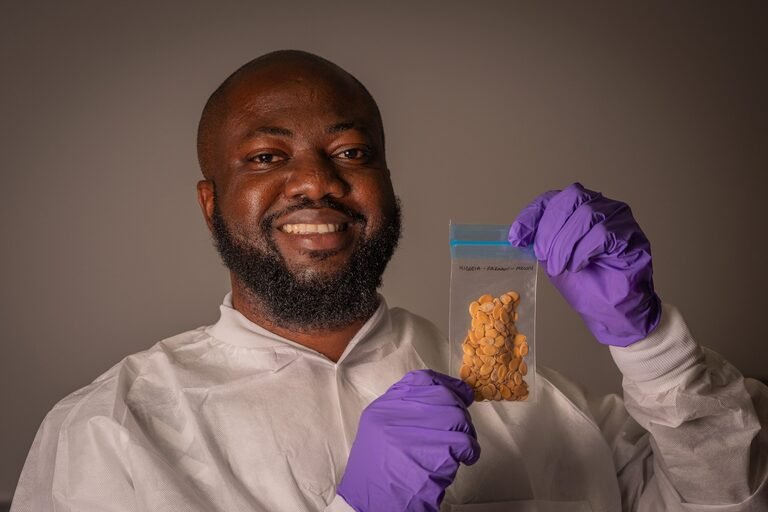An egusi melon seed sourced from Oyo, Nigeria will be part of a multinational agricultural research mission headed to the International Space Station (ISS) on July 31, 2025.
The initiative, led by Nigerian space scientist and entrepreneur Dr. Temidayo Oniosun, marks the first time a seed native to West Africa will be included in a space-based experiment.
The seed will be launched aboard SpaceX’s Falcon 9 rocket from Cape Canaveral, Florida, as part of Crew-11’s mission to the ISS. It will join other culturally significant crops from countries such as Egypt, Armenia, and Pakistan in an experiment aimed at understanding how traditional agricultural seeds respond to microgravity.
“This is the first time an object from Nigeria is going to space,” said Dr. Oniosun, who serves as the Principal Investigator on the project. “By representing Nigeria—and West Africa—on a global platform of space research, the mission also underscores the importance of indigenous crops.”
The project is a collaboration between Oniosun, The Karman Project, and Jaguar Space. Upon its return from the ISS, the Egusi seed will undergo a range of scientific analyses. Dr. Wagner Vendrame of the University of Florida will lead follow-up experiments, including in vitro germination, spectral imaging, metabolic testing, and gene expression analysis.
Egusi, a protein-rich seed widely used in West African cuisine, is also economically significant in Nigeria. The research seeks to explore its resilience in space environments, with implications for sustainable agriculture and food systems during long-duration space missions.
“This mission allows us to contribute to a growing body of knowledge required for extraterrestrial agriculture,” Oniosun said.
The inclusion of egusi in the mission aligns with global interest in food security and agricultural adaptation to new environments, including space. The research also serves as part of broader efforts to integrate African crops into international scientific and technological initiatives.
The project partners note that companies and institutions interested in updates or collaborations can contact the mission team directly.











